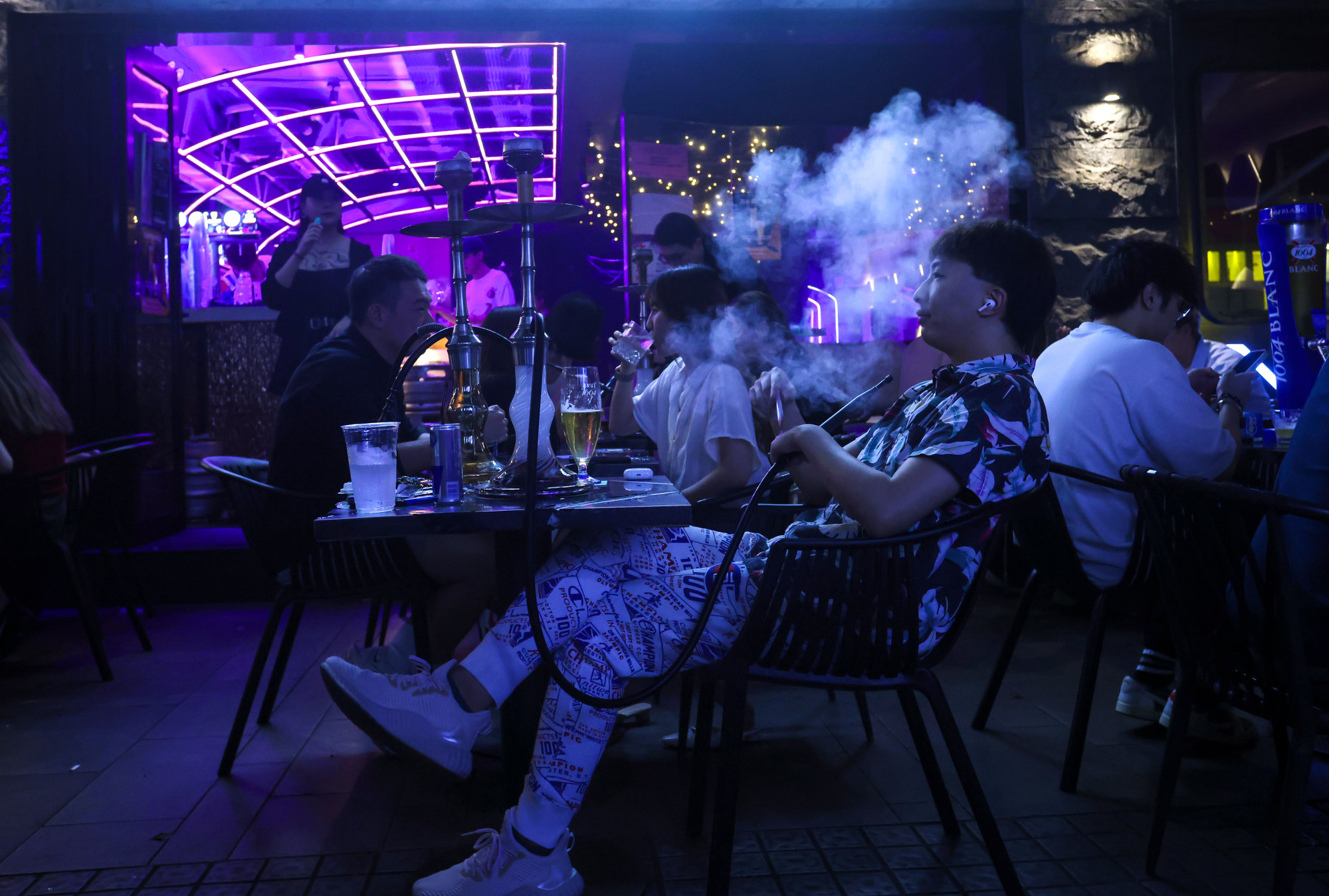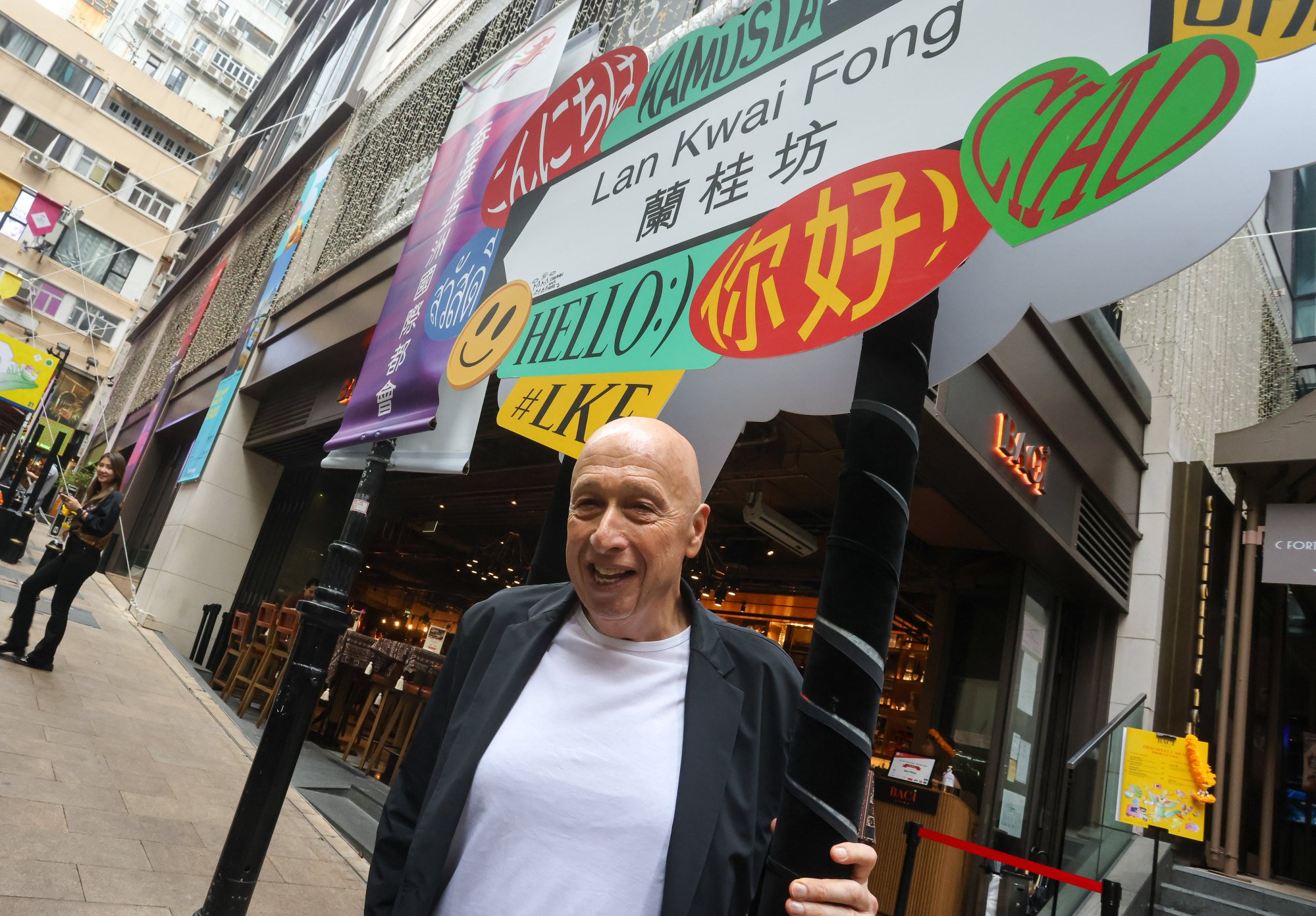Hong Kong shisha bars warn proposed ban on flavoured cigarettes will cripple businesses
Nicholas Chan*, a 25 year-old clerk who since 2021 has invested in two Causeway Bay bars that specialise in shisha, said his business might close down under the ban.
“Flavours are what make shisha interesting,” he said.
“There’s a chance that we will close the business as 80 per cent of sales will drop. The only way to survive is to change to a pure bar business, but it is very competitive at this moment.”
He suggested the government, if it insisted on implementing the ban, could allow for a transition period of two years for bars to adapt.
As a regular shisha smoker for the past six years, he said he and many of his friends did not use conventional cigarettes.
“We like shisha because it creates an atmosphere for us to chat and drink,” he said, adding that the ban might encourage users to seek out the product at illegal venues that offered indoor smoking.
Since 2007, indoor smoking has been outlawed in places such as bars and restaurants, which also applies to water pipe tobacco products. Smoking in outdoor areas of restaurants is still allowed.
Currently 9.1 per cent of Hongkongers aged 15 years and over smoke conventional cigarettes. The overall smoking rate is 9.4 per cent, which includes other products such as heated tobacco, e-cigarettes, water pipes and cigars.
According to the Tobacco and Alcohol Control Office, the smoke from water pipe tobacco products contains nicotine. Smoking such items also releases high concentrations of carbon monoxide, heavy metals and other toxic compounds such as hydrocarbons.
But many young Hongkongers have at least experimented with shisha smoking.
The University of Hong Kong in 2020 found that 23.8 per cent of 1,288 university students it polled had tried the activity already.
Sebastian Yeung*, a public relations officer in his thirties who has been smoking shisha as a social activity for more than 10 years, said he had never heard of or tried a non-flavoured version.
“It is highly unnecessary and restrictive to ban flavoured shisha in Hong Kong, where the options for nighttime social activities are already rapidly dwindling with the reduced number and early closure of bars,” he said.
“I would be very disappointed if Hong Kong decided to ban it, because this would tarnish the vibrancy of our nightlife.”

While acknowledging the health dangers, he said most who enjoyed smoking shisha did not do so regularly because of the high price and the need to gather enough people to share a tower.
Another Causeway Bay shisha bar operator, who only gave his surname, Wong, said business may decrease by 60 to 80 per cent under the ban. The bar might also be forced to close altogether.
“If it is banned in Hong Kong, people can easily travel to mainland China or Macau to smoke shisha,” said the 26-year-old, who has been in business for two years.
“The government on one hand said it would like to boost the nightlife economy, and on the other hand proposed to ban what is popular in bars. It is quite a contrast.”
Wong said many bars, or even party rooms, in industrial buildings offered indoor water pipe smoking despite the existing law.
He said the ban would not affect those illegal venues that were already conducting their business in secret.
The government could issue licences for bars to operate shisha activities and import the products into the city, which could make it easier to regulate the industry and limit the number of shisha smokers, he said.
But Chin Chun-wing, chairman of the Hong Kong Bar and Club Association, said the ban would not have a huge impact on the wider industry as fewer than 10 per cent of bars offered legal water pipe smoking activities.

He said such places might see a 20 to 30 per cent cut in business, adding that a blanket ban on all flavoured tobacco products could drive smokers to illegal indoor establishments.
“The government can set a grace period where they should put more effort in regulating those illegal venues,” he said.
Allan Zeman, the chairman of Lan Kwai Fong Group, said the proposed ban would have a limited impact as customers could still opt for non-flavoured alternatives.
“If they can’t have [flavoured shisha] … I think they’ll just switch to whatever is available,” he said.
Chairman of the Hong Kong Council on Smoking and Health, Henry Tong Sau-chai, earlier suggested the government clearly state in the law that the products were prohibited.
“Water pipe smoking is very attractive to young or female smokers mostly because it has different flavours such as fruit ones,” he said.
He suggested the government first ban the sale and then the possession of water pipe tobacco products.
*Names changed at interviewees’ request.